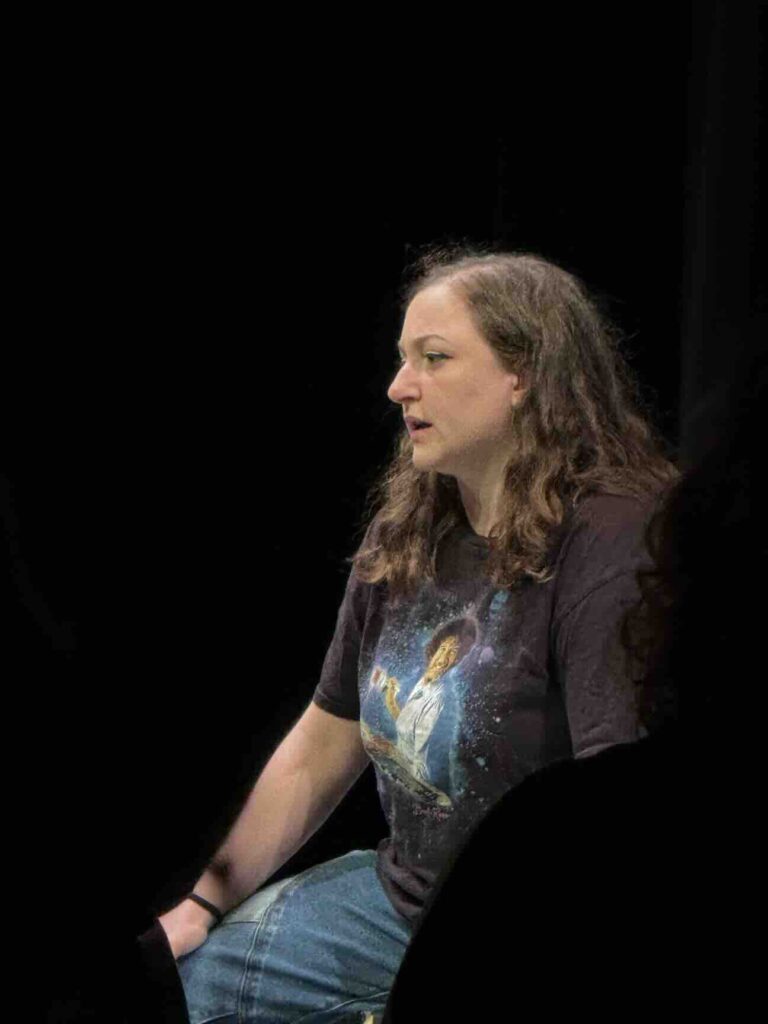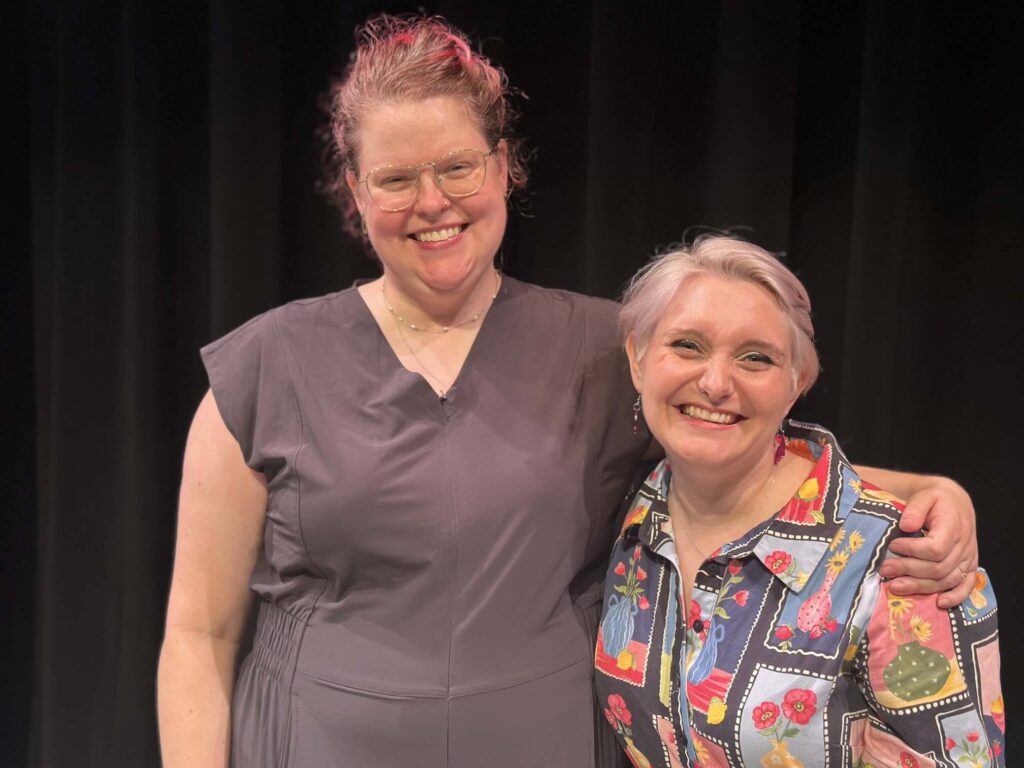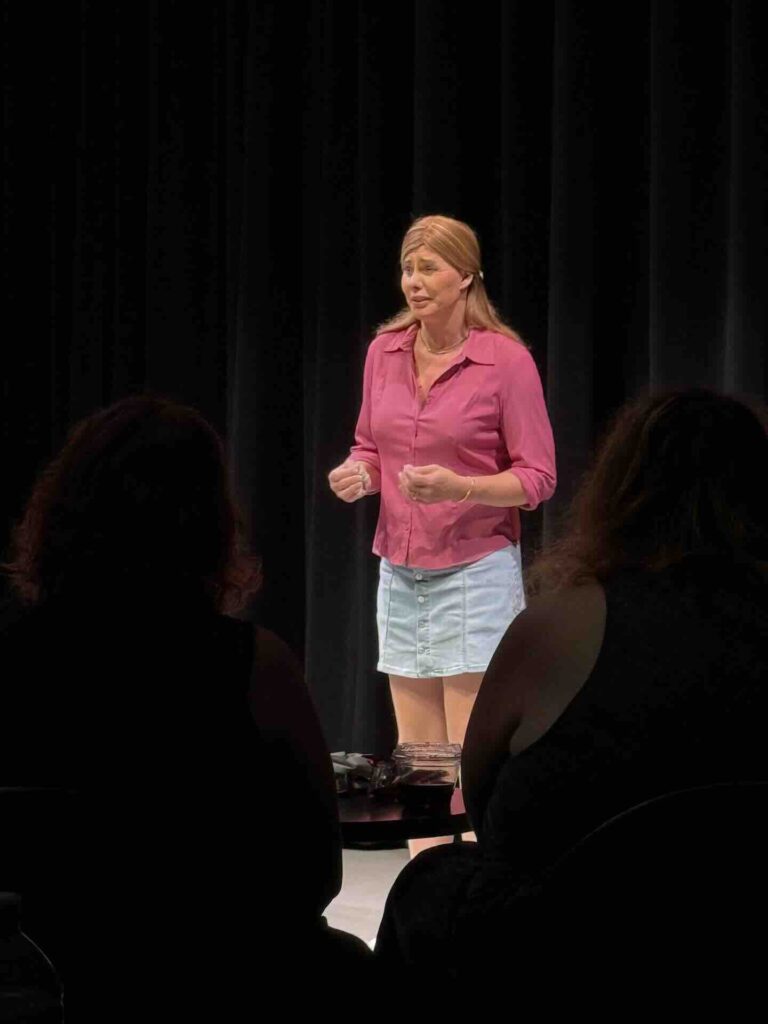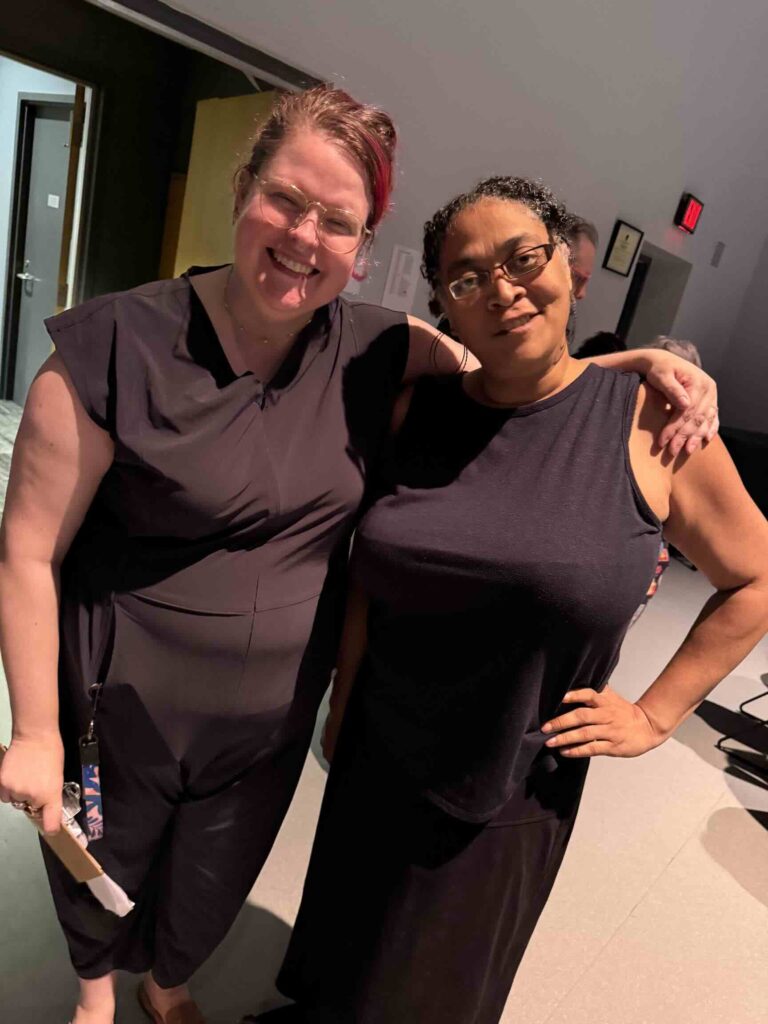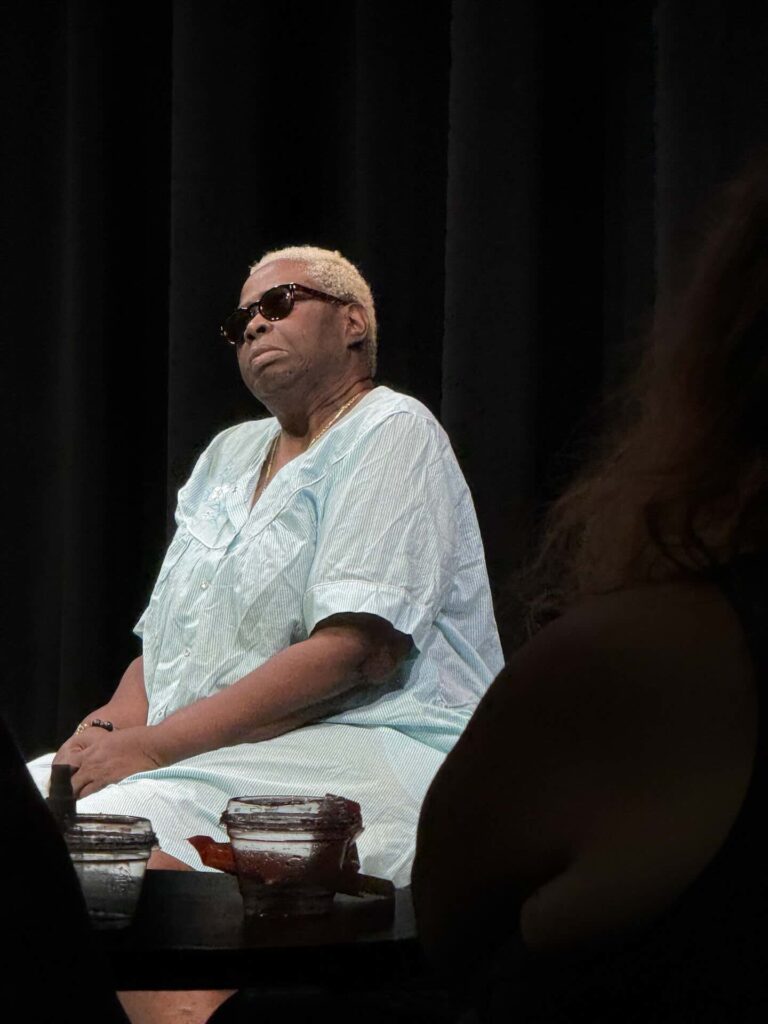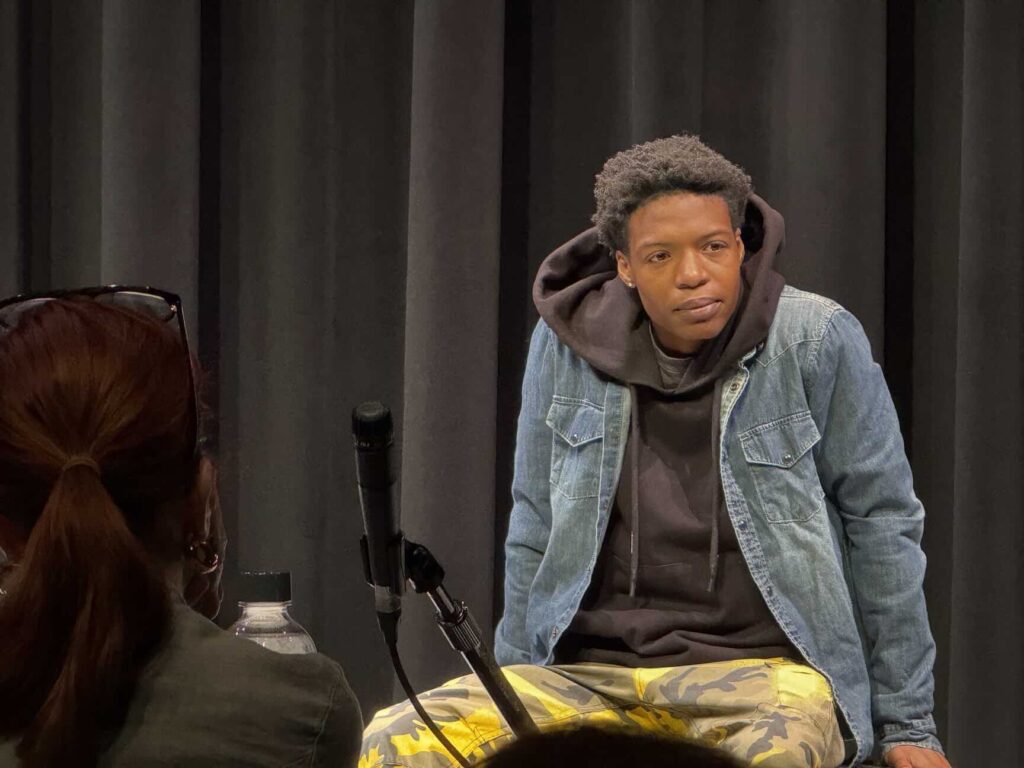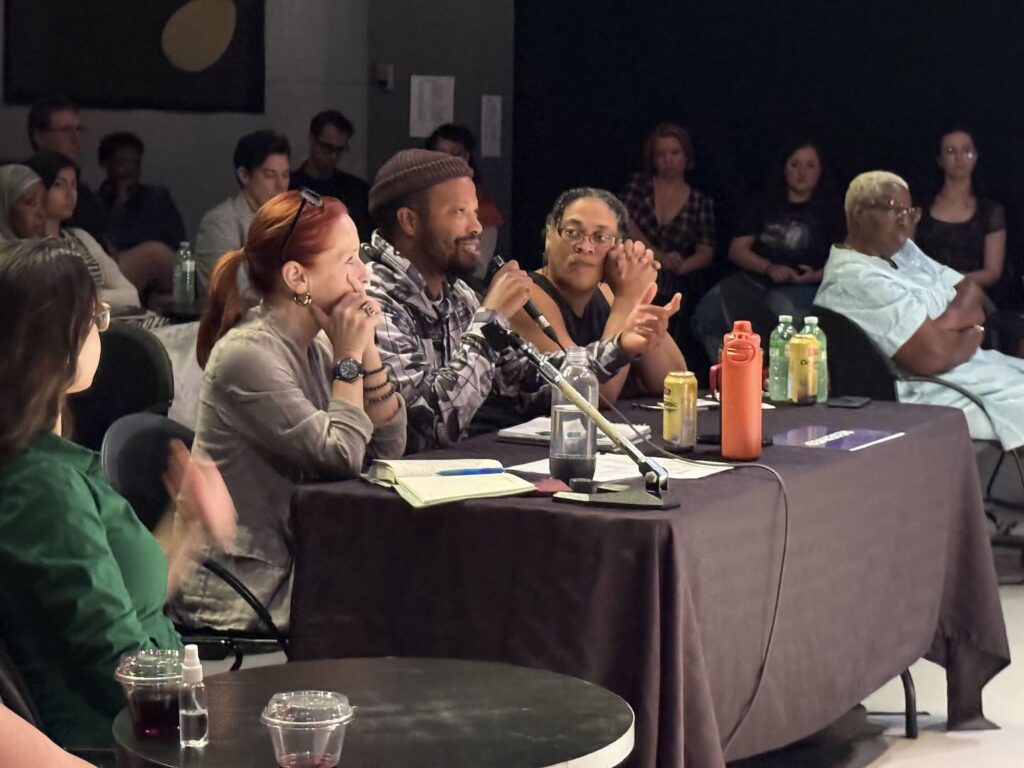Reigniting theatre conversations in Hamilton
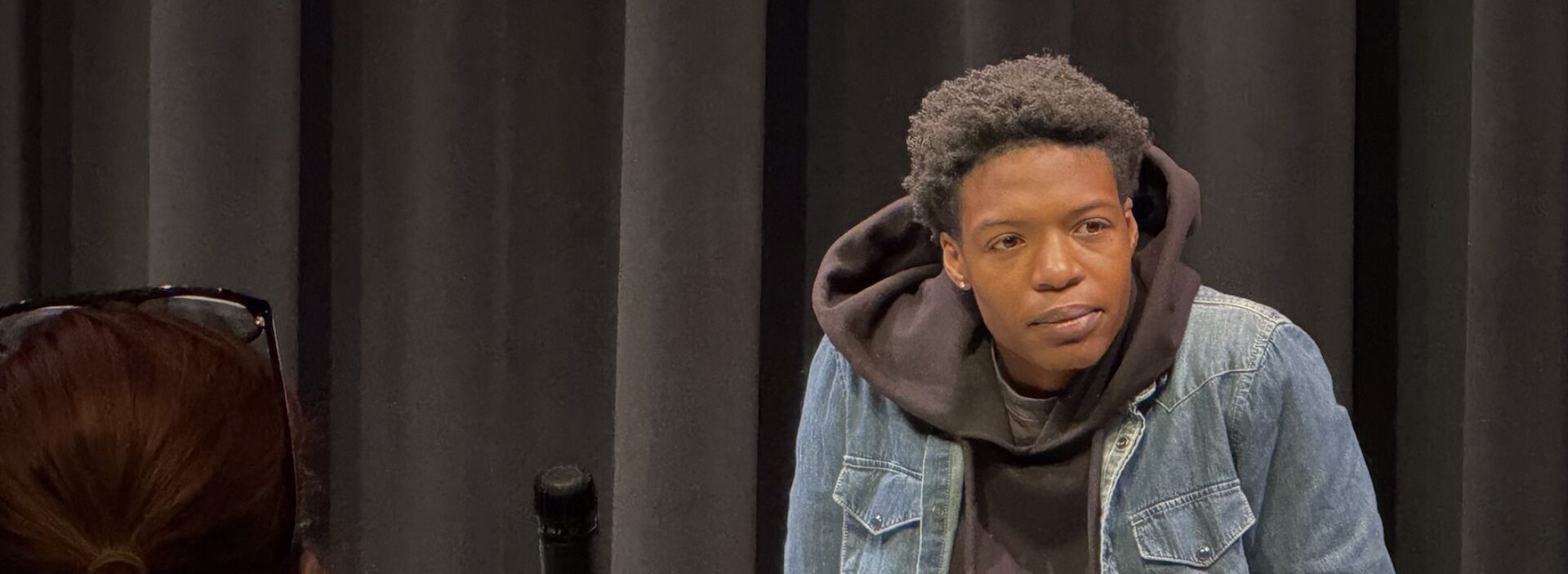
Stage Directions, a weekend of planning, networking and learning among theatre leaders, was last held in 2014 and the time was right, especially in the aftermath of the pandemic, to make it happen again, say organizers.
Billed as the world’s friendliest audition, Monologue Slam was the closing act of a weekend of theatre in Hamilton.
Stage Directions, a collaboration between HFTco (Hamilton Festival Theatre Co.), Theatre Aquarius and The Players’ Guild of Hamilton, brought together the city’s performers, writers, directors, producers, designers, technicians, and theatre makers for two days of strategic conversations and learning.
A full-day symposium happened Saturday, Oct. and on Sunday, Oct. 5 workshops in storytelling and on-stage combat were followed by the monologue competition featuring 11 of the city’s performers and storytellers.
Stage Directions last happened in 2014, when theatre folks got together for the first time to talk about working together to build a stronger, more sustainable Hamilton theatre community.
That event resulted in partnerships, projects and programming that wouldn’t have happened otherwise and continue to make an impact in the city, says Franny McCabe-Bennett, managing director of HFTco.
After the devastation wreaked by the pandemic and its aftermath, she says it was time to gather once again.
“We are revisiting and reigniting these conversations. The world is different and theatres are different. The pandemic is a big part of it, is shook everyone to their bones for sure, but every 15 years or so we go through these cycles where people talk about theatre being dead and that there is no more funding.”
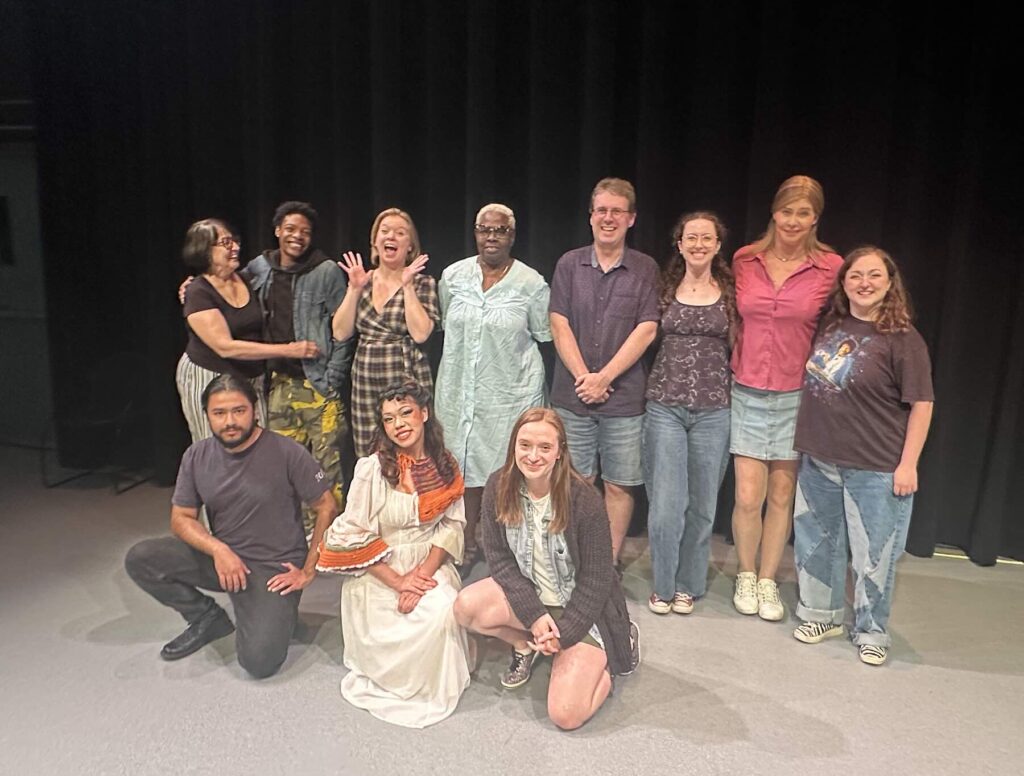
The Hamilton Fringe Festival’s biggest year was 2019 and pandemic lockdowns and restrictions put the brakes on 10 years of building momentum.
But the Fringe folks started noticing last fall that applications for artists for the 2025 edition of the Fringe Festival were higher. By the spring, the festival was reluctantly having to turn away applications from indie venues eager to get Fringe audiences in their spaces.
And the third sign that the Fringe was growing again was a 30 per cent increase in ticket sales for the festival that ran July 16 to 27. There were boosts across all demographics, and in people coming from out of town.
“I think everyone is ready to be connecting in this way again,” says McCabe-Bennett, who grew up seeing musicals, before studying theatre and performing in community theatre.
“There are so many people who love what they do, no matter if it’s an occupation or a passion. The creation of art, whether monetized or not, is always powerful and important.”
Nothing can replicate the crackling energy of a live theatre experience, she says.
“When you are watching actors perform right in front of you and everyone in the room is all in the moment together. I believe people are missing the spark of connection.”
That spark was certainly evident at Monologue Slam Sunday evening in the Theatre Aquarius studio theatre. Confident, talented, powerful and diverse performers stepped up to deliver everything from Shakespeare to original works.
The event began years ago and became an annual project and fundraiser for HFTco’s Frost Bites winter festival and its Alert training program. The last one happened March 7, 2020, just before the world changed.
Professionals, students, community theatre actors applied to take part — more than ever before — and those chosen deliver a three-minute monologue, either an original piece or something taken from a play, TV show or film. A panel of three theatre professionals — Donna-Michelle St. Bernard, Marcel Stewart, and Mary Francis Moore — provided feedback, a maximum of four minutes total, to each of the 11 performers.
At an intermission, the panel chose three monologists to come back to perform their monologue again but each were given a specific way to adjust their approach to their performance. After each delivered their monologues again, an audience vote chose the winner.
The performers and their monologues were:
Alma Sarai (911), Christina Vegas (Key Change), Catherine Allen (Dance Nation), Moazzam Reza (Dr. Faustas), Kathleen Welch (Siofra), Dia Gupta Frid (Rukmini’s Gold), Annie Laleon (Much Ado About Nothing), Gregory Cruikshank (Again in Passing), Izaiah Dockery (Mr. Robot), Rhoma Spencer (Jean and Dinah), and Claud Spadafora (Ozark).
The three chosen for Round 2 were Vegas, whose monologue is from her play that chronicles her life as a trans woman, Dockery, who performed a monologue challenging God and religion from the TV series Mr. Robot, and Spadafora, who delivered a monologue from a character struggling with deeply negative thoughts.
It was evident and fascinating how, in a very short time, each monologist shifted their performance based on the direction from the panel. In the end, Spadafora, a Hamilton-based multidisciplinary artist and co-lead of arts collective Femmepire, was chosen by the audience as the winner of the competition.









